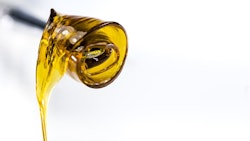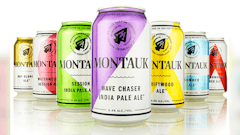
Canadian firm Weekend Unlimited has been lining up acquisitions in the U.S. cannabis marketplace, consolidating its access to distribution channels across a range of product categories and verticals. The company started 2019 by purchasing the remaining 20 percent of outstanding equity in Canna Candys and Canna Medibles, a cannabis-infused product manufacturer that distributes to 380 dispensaries in southern California, according to Weekend Unlimited CEO Paul Chu.
“The final piece of the acquisition of Canna Candys and Canna Medibles is just to make sure that our most valued prize in the edibles sector is not co-owned by any other potentially competing venture,” Chu told Cannabis Business Times. “Plus, the management team of Canna Candys is very suited for the growth plan for Weekend. We decided that it was time to buy out the full company and take the team, the talent, the management, the skill sets of Canna Candys into Weekend.”
The company is now building out a new facility in Adelanto, Calif., which is set to be operational within the first quarter of 2019.
Chu said he’s intent on fitting this full acquisition into the broader Weekend Unlimited distribution chain, which includes Northern Lights Organics, Orchard Heights Growers and CHAMP Energy. Part of the allure of owning the entirety of the Canna Candys company is the team that actually built the business—a core consideration of many cannabis M&A deals.
“There’s always that component: the talent,” he said. “Probably more important is the years of experience and sales channel build in the cannabis industry in California. The team of Canna Candys intrinsically has met those criteria.”
In California, Canna Candys has built its successes under the state’s Prop. 215 medical cannabis market, Chu pointed out.
Now, in light of the Bureau of Cannabis Control tightening its permanent rules, California’s adult-use and medical cannabis markets will allow commercial business only between licensed entities. The so-called white labeling practice that had allowed unlicensed businesses to transact in the cannabis marketplace has been tightened up; the brand owner must be disclosed as an owner of the licensee, which is another underpinning of Weekend’s deal.
“You really can’t be operating anymore in the gray area,” Chu said. “We felt that the only way to scale was to operate outside of 215 [and move] into the new licensure model. Because of the current [hard candy] market share of 35 percent [in southern California], we felt that we should be able to penetrate maybe even 50 percent of the dispensary market within the first year of operations.”
Chu is predicting $2 million in 2019 revenue for Canna Candys and Canna Medibles.
That goal is facilitated by Weekend’s 5-percent equity stake in High Desert Group, a large cannabis extraction firm in southern California. “Weekend brands—such as Canna Candys—we have the right to operate as what’s called a ‘financial interest party.’ California recognizes [that] if you have financial interest in a company, you can actually produce your goods in it, your brands in it— you have distribution rights. That is the core model that [allows us to] operate legitimately under the proper licensure. At the same time, we bring in the talent, we bring in the machinery, we bring in all the IP that makes Canna Candys and Canna Medibles proprietary as well as distributable.”
One week after the close of the Canna Candys deal, Weekend announced the acquisition of Verve Beverage Company.
“With the addition of Verve, we now have a platform for Weekend to expand both its distribution and product offerings: THC by state where legal, and CBD across the country,” Chu said in a public statement. “This distribution network will allow us to grow and manage indirect channel and big-box placements nationwide for multiple brands in our portfolio.”























